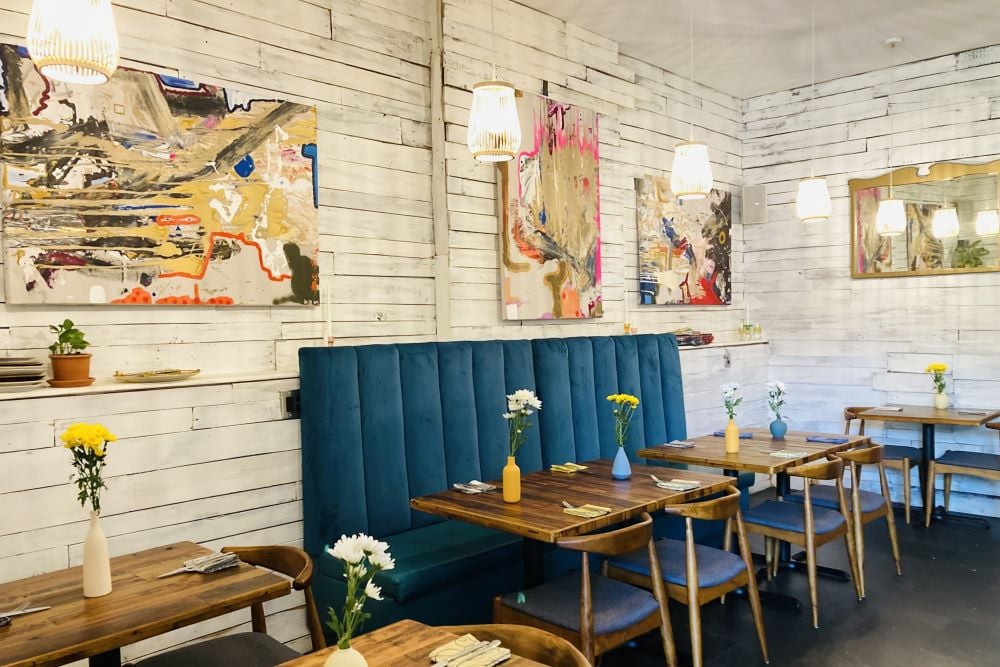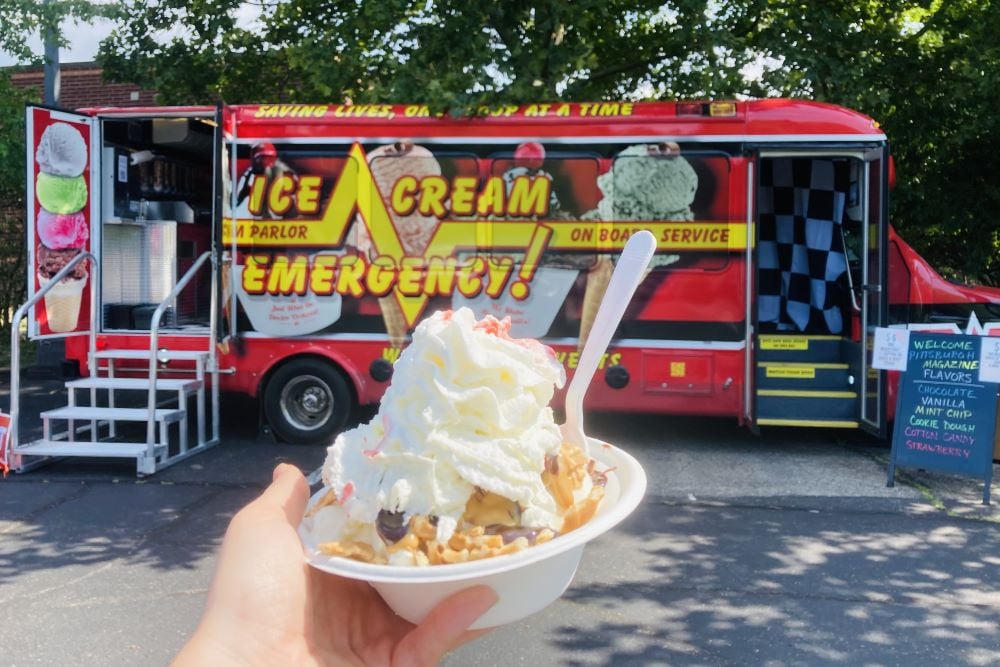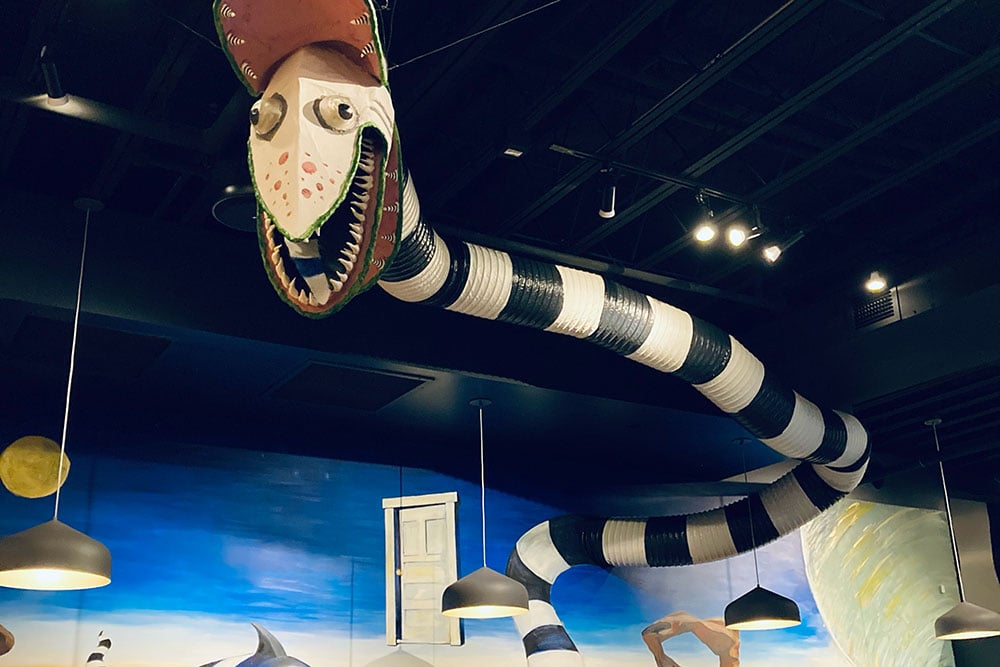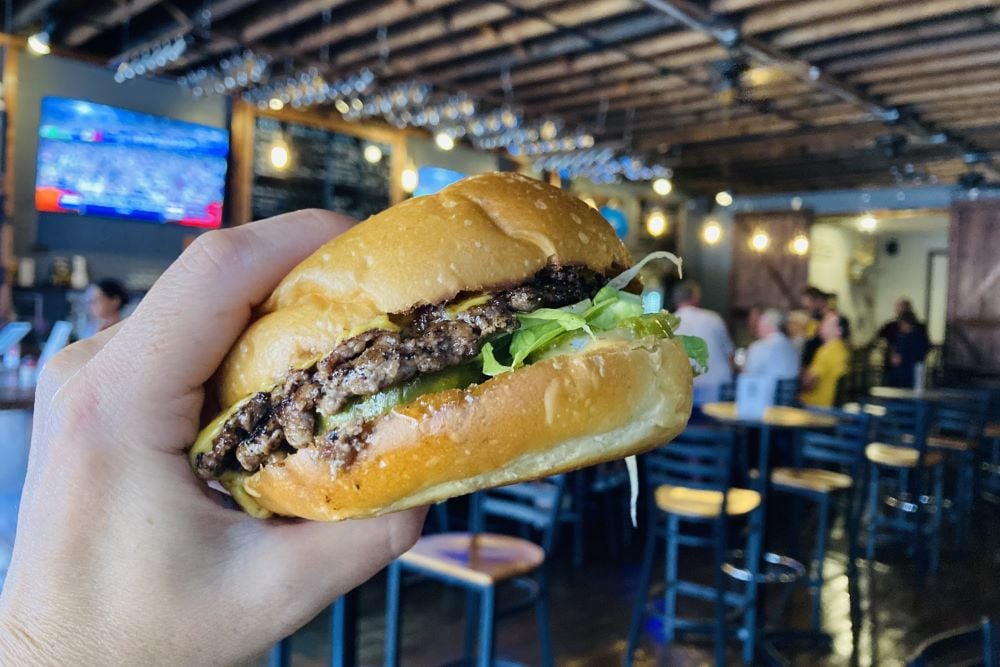Pittsburgh Brewing Company Gets Into The Spirit With Iron City Distilling
The new distillery in Creighton uses locally sourced heirloom grains to make rye whiskey and other boozy offerings.
“Whiskey is basically beer that’s been distilled,” says Master Distiller Matt Strickland as he stands on a platform overlooking Iron City Distilling, Pittsburgh Brewing Co.’s new spirits-producing facility in Creighton. “We’re taking our time with it.”
Yinz can expect to chase a shot of I.C. Whiskey with an I.C. Beer in 2027.
The Nashville native was hired two years ago to serve as a consultant on the project. Now he’s in charge of making its whiskey, bourbon, rum and gin.
Strickland is an author and educator who serves as an adjunct faculty member at Siebel Institute of Technology in Chicago and Kentucky’s Distilled Spirits Epicenter, colloquially known as Moonshine University. He is one of only two Americans to sit on the Distilling Board of Examiners for the Institute of Brewing and Distilling in the United Kingdom. and he’s helped launch distilleries in Tennessee, Washington, D.C. and Canada.
The guy knows a lot about booze without being a pretentious blowhard about it. He’s kind, enthusiastic and forthcoming when talking about this job; my crash course in whiskey even included a sample straight from the barrel.
“I have an open-door policy,” says Strickland, who will lead public workshops starting in December. “All of our techniques and recipes — all of my tricks, so to speak — are out there.”
On Nov. 3 from 3 to 6 p.m., guests can sample whiskies he produced at D.C. ‘s District Distilling Co., which closed several years ago, and a house-made rum. There are about 165 barrels of Distiller’s Reserve bourbon, rye, and wheat whiskey that are between 4f-our and 6 six years old. Bottles will go on sale in the company’s retail site the day after The Top-Shelf Whiskey Affair — if attendees don’t drink it all.
Ticket-holders will get first dibs on the rare offerings and a tour of the 6,500-square-foot distillery that sits behind Pittsburgh Brewing’s 170,000-square-foot suds factory that includes a steam-heated rickhouse that can hold up to 4,500 whiskey barrels.
From 1883 to 2018, PPG used the site along the Allegheny River to fabricate glass for cars, planes and buildings. Pittsburgh Brewing’s been cranking out beer there since 2022.
By next summer, the 40-acre campus will also feature an outdoor stage where national acts will perform for up to 20,000 fans. (More than 800 people attended Pittsburgh Brewing’s inaugural Oktoberfest celebration last month.) Future plans include a museum, restaurant and marina, making Iron City seem more like an Iron Kingdom.
Pittsburgh Brewing President Todd Zwicker says the new branch of the company is a farm-to-flask distillery that sources ingredients from throughout the Commonwealth. The company is working with CNC Malt, a Butler County-based business that uses locally sourced grains such as barley, wheat and oats to make small-batch, craft malts for breweries and distilleries.
Last year, Iron City Distilling contracted an area farmer to plant 250 acres of Keystone Rosen Rye, an heirloom grain that defined Western Pennsylvania whiskey in the 1800s. (Wigle Whiskey re-ignited Pittsburgh’s whiskey tradition when it started distilling in the Strip District in 2011. It’s named for Philip Wigle, the man who started the 1790s Whiskey Rebellion in protest of Alexander Hamilton’s Whiskey tax when he punched a federal tax collector.)
By next year, Strickland hopes to be making rye whiskey on a new three-chamber still like folks did back when George Washington was president of the United States. He says the contraptions fell out of favor during Prohibition because they are difficult to operate. When helmed by an expert, a three-chamber still extracts more oils out of the grains, resulting in a high-quality liquid that’s aromatic and viscous.
Strickland didn’t become a whiskey aficionado until after graduating from Oregon State University in 2012 with a master’s degree in enology and viticulture. In other words, he started out as a winemaker.
“I wasn’t even a spirits drinker at the time,” he admits. “The spirits industry, in general, can seem a bit impenetrable. So much of our craft has been shrouded in mystery and sometimes it feels like there are cultural gatekeepers. It should be more accessible and more inclusive. We would like to see more women and people of color.”
That being said, Iron City Distilling is hiring.
“I’ve made a fair amount of rye whiskey over the years, but not like this,” he says. “To be able to play with recipes and recreate a style of whiskey people haven’t had in 150 years or more. We are really lucky.”


















